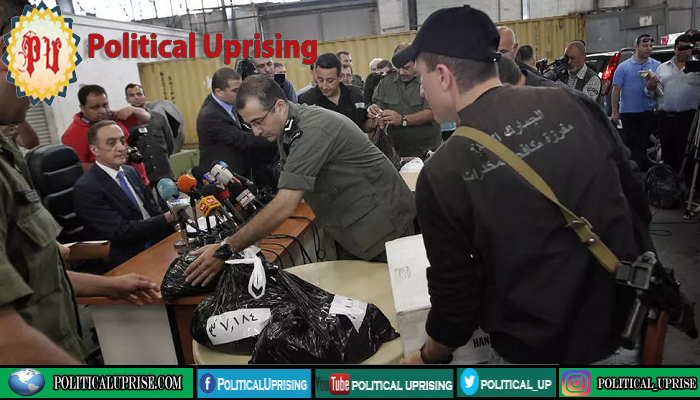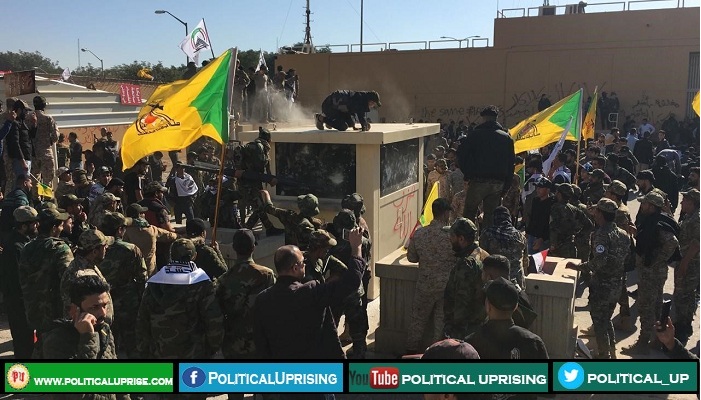Syria’s government has withdrawn from US-backed peace talks in Paris with Kurdish-led Syrian Democratic Forces, citing recent Kurdish political moves as a setback.
The announcement, reported by Syria’s state news agency SANA, comes amid escalating tensions between Damascus and the Kurdish-led administration in northeastern Syria.
A government source described a recent Kurdish-organized conference, which called for a democratic constitution and decentralization, as a significant blow to ongoing negotiations.
“The Syrian government stresses that the SDF conference dealt a blow to the ongoing negotiation efforts,” the source said. “Accordingly, the government will not participate in any meetings scheduled in Paris, nor will it sit at the negotiating table with any side seeking to revive the era of the deposed regime under any name or cover.”
Turkey Moves Closer to Eurofighter Jet Deal After Breakthrough with UK, Germany
In March, the Syrian interim government and the SDF signed a framework agreement aimed at integrating Kurdish-led forces into Syria’s state institutions, an essential step toward healing the country fractured by over 14 years of civil war.
The agreement sought to unify the country by allowing Kurdish forces, who control roughly a quarter of Syrian territory, to join national security and political structures.
Despite the deal, many key issues remain unresolved particularly how Kurdish fighters will be integrated into the Syrian armed forces.
The government insists on individual integration of fighters, whereas the SDF demands entry as a unified bloc. This disagreement has complicated the implementation of the accord.
The Kurdish-led administration recently held a major conference involving minority communities, the first since the ouster of President Bashar al-Assad.
The event culminated in a call for a democratic constitution that ensures decentralization and broad participation of all Syrian components.
Damascus, which has historically opposed decentralization, viewed the conference as a direct challenge. The government’s refusal to attend the Paris talks was framed as a response to what it called “political treachery” by Kurdish forces.
Turkey and China Renew Currency Swap Agreement Amid Updated Exchange Rates
Turkey’s opposition to the Paris talks has played a critical role in the collapse of the negotiations. Ankara, concerned about Kurdish autonomy and links between the SDF and the Kurdistan Workers’ Party (PKK), which it designates as a terrorist group, pressured Syria to abandon the meeting.
Turkish Foreign Minister Hakan Fidan’s recent visit to Damascus reportedly aimed to convince Syrian authorities to cancel the Paris talks. Turkey also expressed dissatisfaction with the venue, proposing Amman, Jordan, as a neutral alternative. Ankara fears France’s historically pro-Kurdish stance will influence outcomes unfavorably.

Violence between government-backed factions and the SDF has increased in recent weeks, with the Kurdish forces accusing pro-government militias of over 22 attacks in northeastern Syria. These clashes threaten to erode mutual trust and undermine prior agreements.
While the US envoy for Syria, Tom Barrack, has advocated for the resumption of talks, and France has expressed support for Kurdish rights in Syria’s political transition, the failure to convene negotiations in Paris highlights the complexity of regional rivalries.
Turkey Engages in Nuclear Plant Discussions with Candu Energy and Other Firms
SDF commander Mazloum Abdi has indicated openness to alternative mediators such as Saudi Arabia if the Paris venue remains blocked.
Syria’s withdrawal from the Paris talks underscores the fragile and contentious nature of the peace process in the war-torn country. With unresolved issues over Kurdish integration, increasing security incidents, and significant external pressures particularly from Turkey the path toward a lasting political settlement remains fraught with obstacles.



